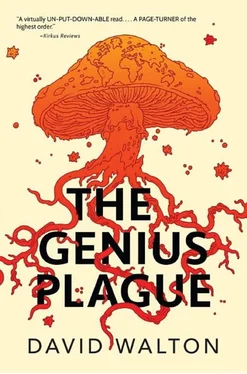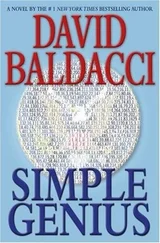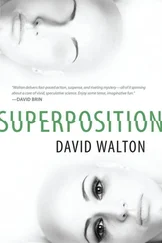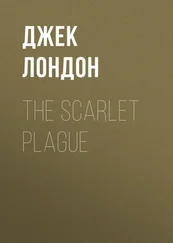The tires burst with a pop like gunfire. The rims screeched, grinding against the spikes before I thought to lift my foot off the gas. Soldiers ran out of the security hut and surrounded the car, shouting at the top of their lungs and pointing automatic weapons at me. Adrenaline flooded my system, but I was frozen in place, too terrified to twitch a finger. Blood pounded in my temples and behind my eyes.
Finally, my overwhelmed mind began to comprehend the words the soldiers were shouting. “Turn off the engine and step out of the car! Come out with your hands in view!”
Hands shaking, I turned the key, killing the engine, and stepped slowly out of the car. One of the soldiers lowered his weapon and pushed me into the side of the car, pinning my arms and patting me down. “I was just trying to return my badge!” I managed to say. They didn’t answer.
A line of cars was forming behind me, NSA employees ready to get home to their families. The door opened in a blue sedan three cars back in line. Melody Muniz stepped out. She walked up the line until she could see me clearly. My eyes met hers, and I gave her a shaky, mortified smile. She shook her head. “You have got to be kidding me.”
Even with a recent security clearance, it took weeks for me to get my badge. I had to take a polygraph—apparently even current employees were now getting them quarterly, ever since Edward Snowden had disclosed several thousand classified documents to journalists back in 2013. I also had to update and verify my security paperwork, take a drug test, and list in detail any relationships I had with foreign nationals.
While I waited, I visited Paul, sometimes several times a day. He gained strength quickly, much faster than the doctors seemed to expect. Finally, the hospital staff disconnected his IV and pronounced him fit for discharge. My mom and I came to pick him up. Before we could take him, a nurse repeated Dr. Chu’s earlier instructions about his prescribed sulfadimethoxime.
“Don’t skip any doses,” she said. “If you miss one, take it as soon as you realize. It’s dormant now, and you’ll start feeling fine, but it can come back. If it does, it’ll be resistant to the medication, and it will hit you a lot worse.
“Stay in bed for a week, even if you start to feel better. Drink plenty of fluids. Your body needs a lot of energy to fight this off, so take it easy.” To Mom, she said, “If his fever goes above 103 degrees, or you notice any other symptoms—any rashes, lesions, discoloration, difficulty breathing, pain in other places in his body—then he needs to see a doctor right away.”
We agreed to follow these instructions to the letter, and she brought a wheelchair to cart him out to the lobby. Once there, Paul stood, and though he was still pale and coughed a lot, he seemed his normal self. He walked out to the car, and we all drove back home.
The next week was hard. Paul gained strength and looked healthier every day, but he was morose and irritable. I knew it was a kind of survivor’s guilt, a struggle against the apparent wrongness of his continued existence when everyone else involved in the incident was dead. It implied something supernatural, that he had been preserved for some higher purpose. It put a pressure on his life, as if he were living it for all of the people who had died. Maisie most of all, whom he had failed to save.
At least, I thought that’s what he was thinking. He didn’t say much, and he resisted any attempts on my part to broach the subject. I even suggested once that he ought to consider seeing a therapist, but he dismissed the idea. “I’m sad,” he said. “It’ll pass eventually, but for right now, that’s how it is. I’m allowed to be sad, aren’t I?” I admitted that he was and let it drop.
As he recovered, Paul started to move around a lot more. He tired of sitting still and watching daytime television. He was lucid enough to play chess, which he always won, and Scrabble, which I did.
One evening, he took me aside and showed me an online article from Folha de S. Paulo , a Brazilian newspaper. I skimmed the Portuguese, taking in the meaning without processing every detail. It reported a dramatic increase in the number of fungal lung infection cases in the Pará and Amazonas states, including a large number of deaths. “Don’t you see what this means?” Paul said.
“What?”
“If there’s an epidemic, some new fungus that’s getting around, then Maisie wasn’t my fault.”
I gave him a hard look. “She was never your fault.”
“I’m the one that took her through the jungle. I gave her mushrooms. I’m supposed to know about these things.”
I wanted to argue with him, but it seemed better to let it go. “You’re right,” I said. “She could have picked up that infection even if she’d never met you.”
“She was a great person,” Paul said. “Nothing was ever going to come of it, between us, not living on opposite sides of the country. But she didn’t deserve to die.”
I couldn’t disagree with that. “I’m sure she didn’t,” I said. “I’m sorry she couldn’t have lived as well. But I’m glad you’re alive.”
Finally, I was given my badge—with surprisingly little pomp for what was to me a momentous occurrence—and told to report on Monday morning to my new job.
FANX was a pretty big place, but it was nothing compared to Fort Meade. The NSA Headquarters was the size of a city, complete with bank, post office, hair salon, movie theater, and medical center. It was home to thousands of people and a daily place of work for thousands more. The fact that so many other people were doing the same thing dulled none of my excitement, however, when I pulled off the Baltimore-Washington Parkway and joined the stream of cars onto Savage Road, my very own badge around my neck.
From a distance, the obsidian glass of the giant headquarters building caught the eye, but the true scope of the place wasn’t immediately obvious. The road brought me between two guard towers, beyond which a pair of ten-foot fences topped with razor wire marked the edge of the property. Between the fences, guard dogs patrolled, and the soldiers at the gate wore fatigues and carried the biggest guns I’d ever seen.
I stopped at the checkpoint, holding up my badge, which had my picture and name printed on it. I had spent most of the weekend sneaking looks at it, trying it on, and admiring myself in the mirror. The soldier at the gate scrutinized it and compared it to my face. I donned my most serious secret agent expression and nodded at him smartly when he handed it back. He ignored me, already looking toward the next car.
The misunderstanding at the FANX gate a few weeks earlier had been cleared up without too much difficulty. Apparently I wasn’t the first idiot visitor to try to back up in the exit lane, though I was the first to actually shred my tires on the security spikes. Once the car was thoroughly searched, the soldiers had pushed it out of the way—requiring eight of them to actually lift the back of the car off of the spikes—and I had called the same bemused tow truck driver to retrieve yet another car of mine from the NSA facility.
My employee badge allowed me to bypass the K-9 search, and I rolled right into one of several enormous parking garages. I was still driving my mom’s car, now with a new set of tires. I had promised to repay her for the tires the moment I got my first paycheck, and to buy a car of my own soon after that.
I walked toward the building, breathing the fresh air and admiring my surroundings. The high fences, the concrete stanchions designed to stop a tank, the towers bristling with antennas and manned with armed soldiers—all of it combined to make me feel like I was special, someone worthy of being trusted with the secrets of the United States government. I was entering the sanctum sanctorum, a place very few people—comparatively—were permitted to go.
Читать дальше













